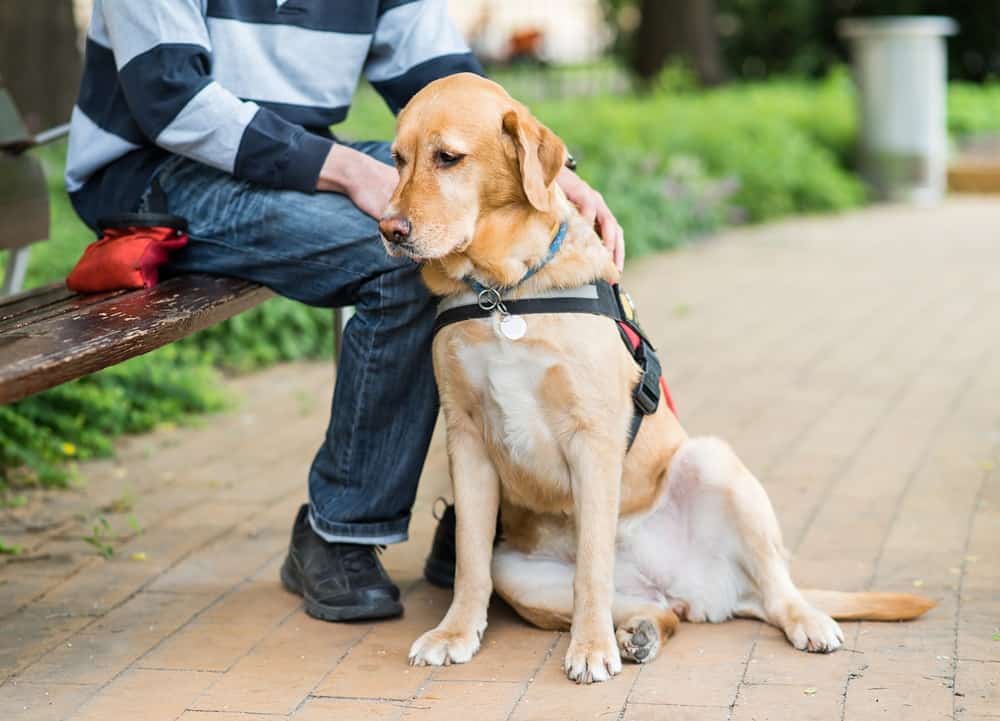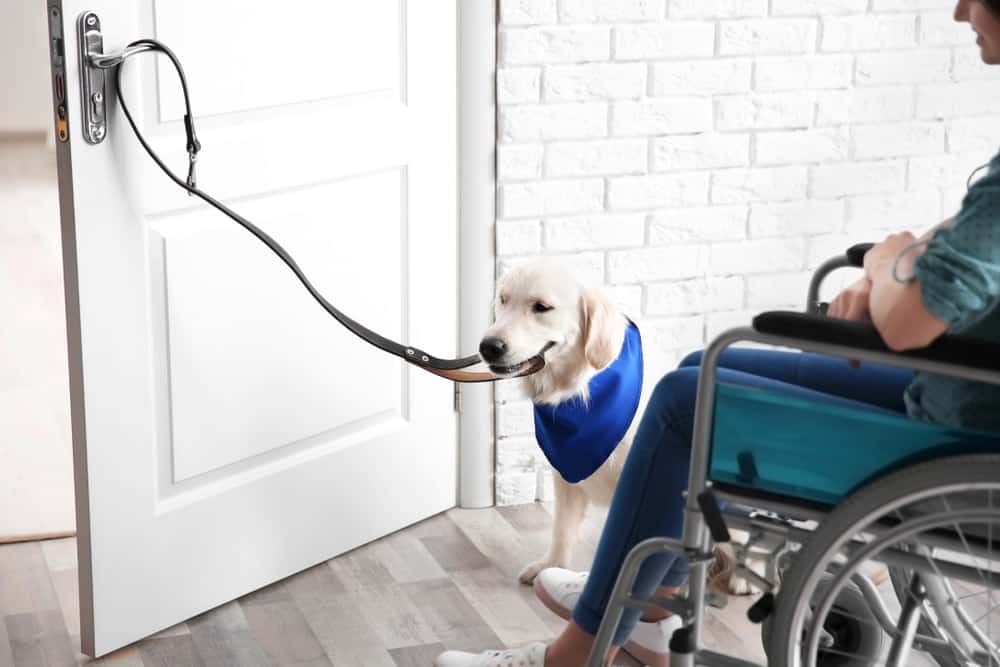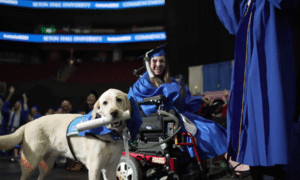“This post contains affiliate links, and I will be compensated if you make a purchase after clicking on my links.”
Veterans coming back from deployment overseas are often left facing many challenges, both physical and psychological. Many vets returning from overseas duty in Iraq and Afghanistan suffer from post-traumatic stress disorder (PTSD) and traumatic brain injury (TBI). These types of injuries can be incredibly difficult to deal with, but service dogs have proven to be one of the best tools available to help veterans with these issues.

Service Dogs Vs. Pet Dogs
Service dogs are different from the family dog. They are working dogs who have been specifically trained to help people with a wide variety of needs. Service dogs can help with many tasks, including:
- Helping to guide the blind
- Alerting those who are deaf to things that need attention
- Picking things up off the ground
- Fetching things (obviously)
- Opening and closing doors, drawers, and cabinets
- Turning lights off and on
- Helping people get dressed
- Helping people into an upright position
- Preventing falls
- Moving a person’s arms and feet onto the armrests and footrests of a wheelchair
- Pulling a wheelchair
- Calling 911
- Barking to find help on command
- Detecting allergens
- Detecting low and high blood sugar levels
- Alerting others when a person is having issues like a diabetic attack
- Reminding people to take their medication
- Helping with insomnia
- Waking you up when you are having a nightmare
- Interrupting flashbacks and helping prevent behavior that causes self-harm
- Helping to calm people having anxiety attacks

As you can see, service dogs are capable of almost anything that an owner could possibly need from them. Most people find that their family pet dog can’t even sit on command half the time.
However, this is not to suggest that a regular dog cannot help a disabled vet as well. While your standard dog might not be able to get you dressed and undressed, most dogs can still be helpful in situations where their owner is having an anxiety attack. Dogs can pick up on the nervous energy of their owner, and almost all dogs will come to their owner to offer comfort in these situations.
Getting a service dog is ideal when dealing with issues like PTSD and TBI, but these highly trained dogs are very much in demand. It can sometimes take years on a waiting list to get one. Don’t shy away from getting an average dog to help with your condition. A dog is the best friend a person could ask for, and of course, your best friend will do everything that they know how to do in order to help their owner.
Programs Available
There are many different programs available that put veterans together with service dogs. You can get a service dog through the VA if you have filed a claim for disability benefits. They will not cover the everyday costs that come along with owning a dog, but they will work to get you a professionally trained service dog to help with your needs. If interested in getting a service dog through the VA, consult these veteran disability FAQs for further information.
Aside from the VA, there are multiple private organizations that work to get service dogs to retired veterans in need. All of these programs have something that makes their organization unique. Some of these services look to help out not only veterans in need but dogs in need as well. They take rescue dogs and train them to be service dogs. In this way, the veteran and the dog both really help each other.
Other services take care of all costs. They provide the service dog to veterans for free and then also pay for food, veterinary care, and any equipment that the dog needs to perform their duties.
Dogs Can Do It All
Even veterans who aren’t suffering from any severe form of PTSD, TBI, or other similar ailments can benefit from having a dog around. They may not qualify for a service dog. However, even a pet dog can bring a welcome comfort after facing the rigors of the military and the cold realities of war. Dogs are always happy to love and be loved.


















